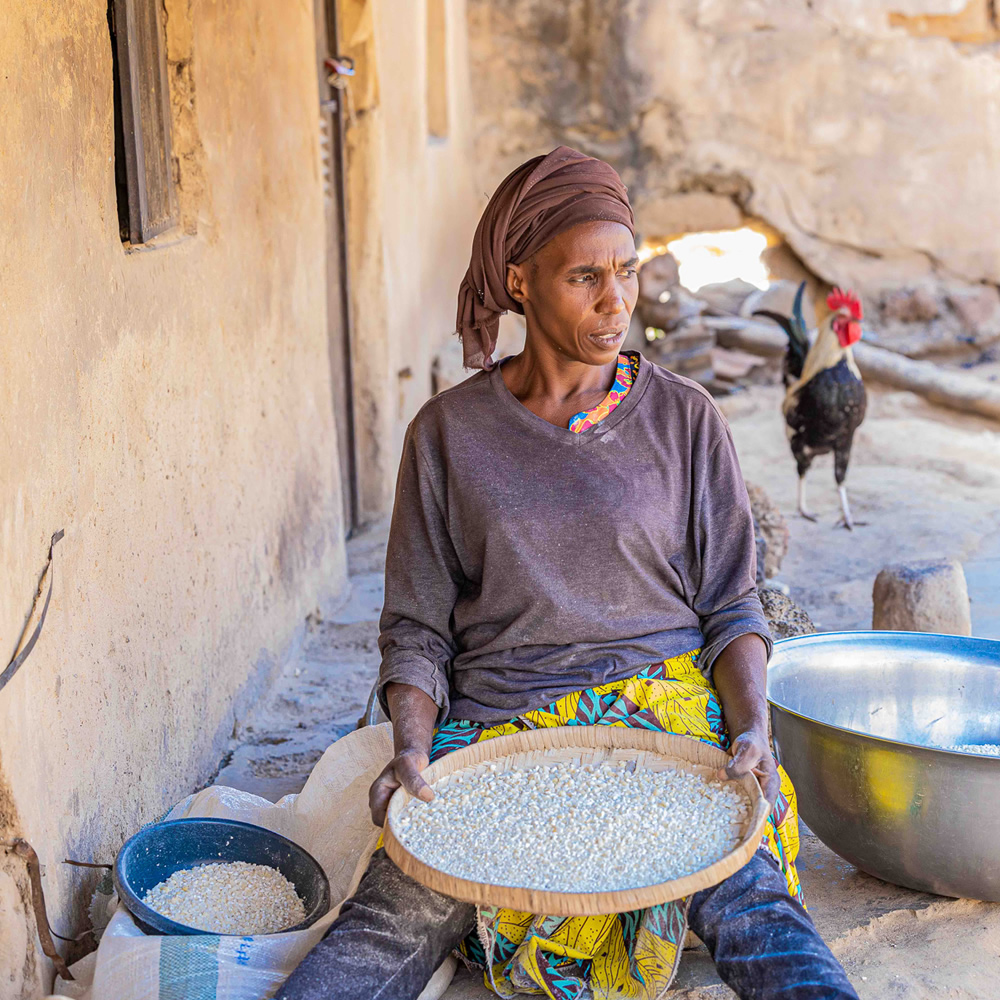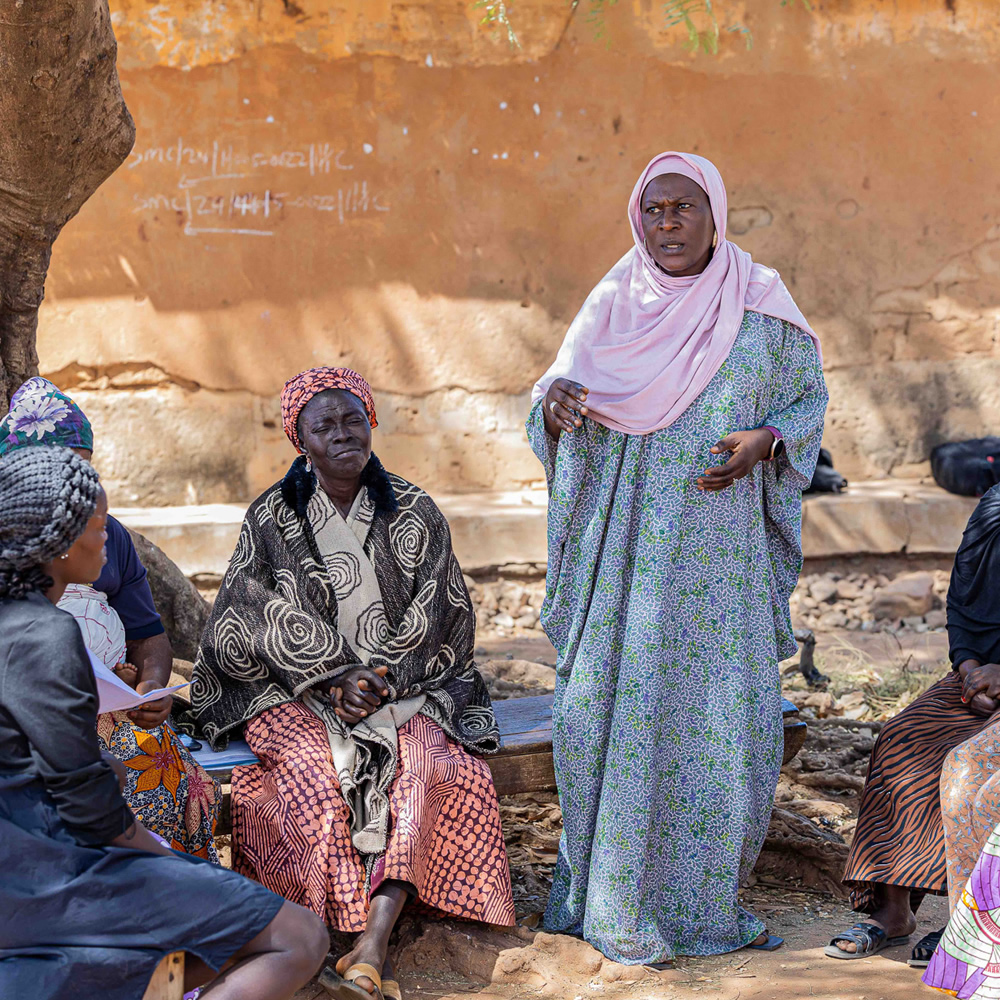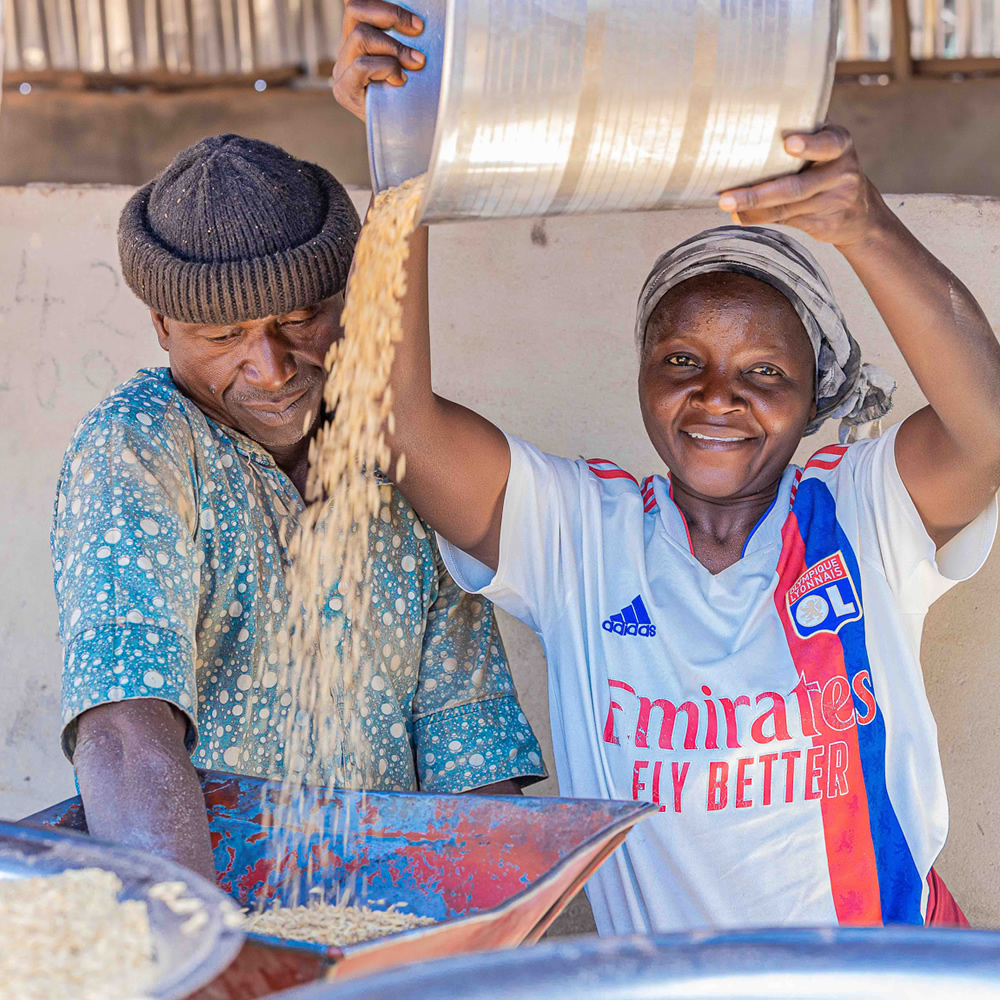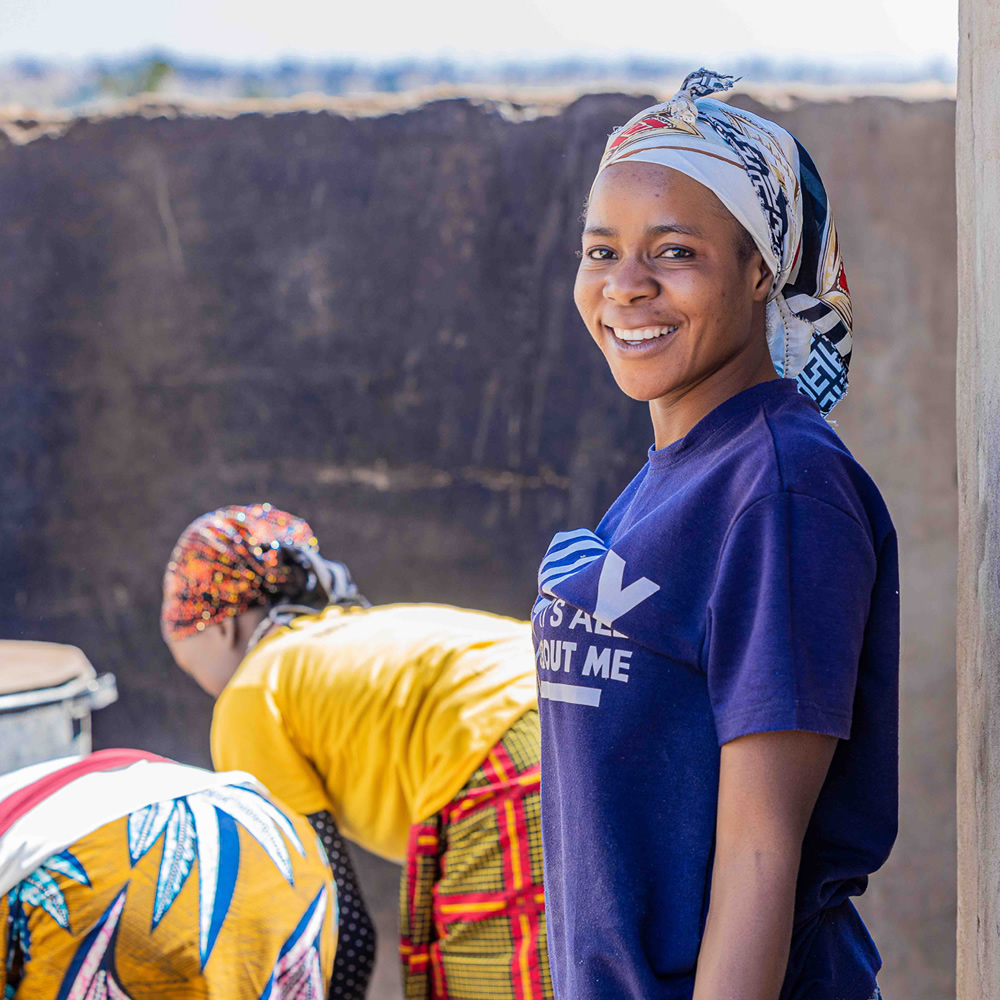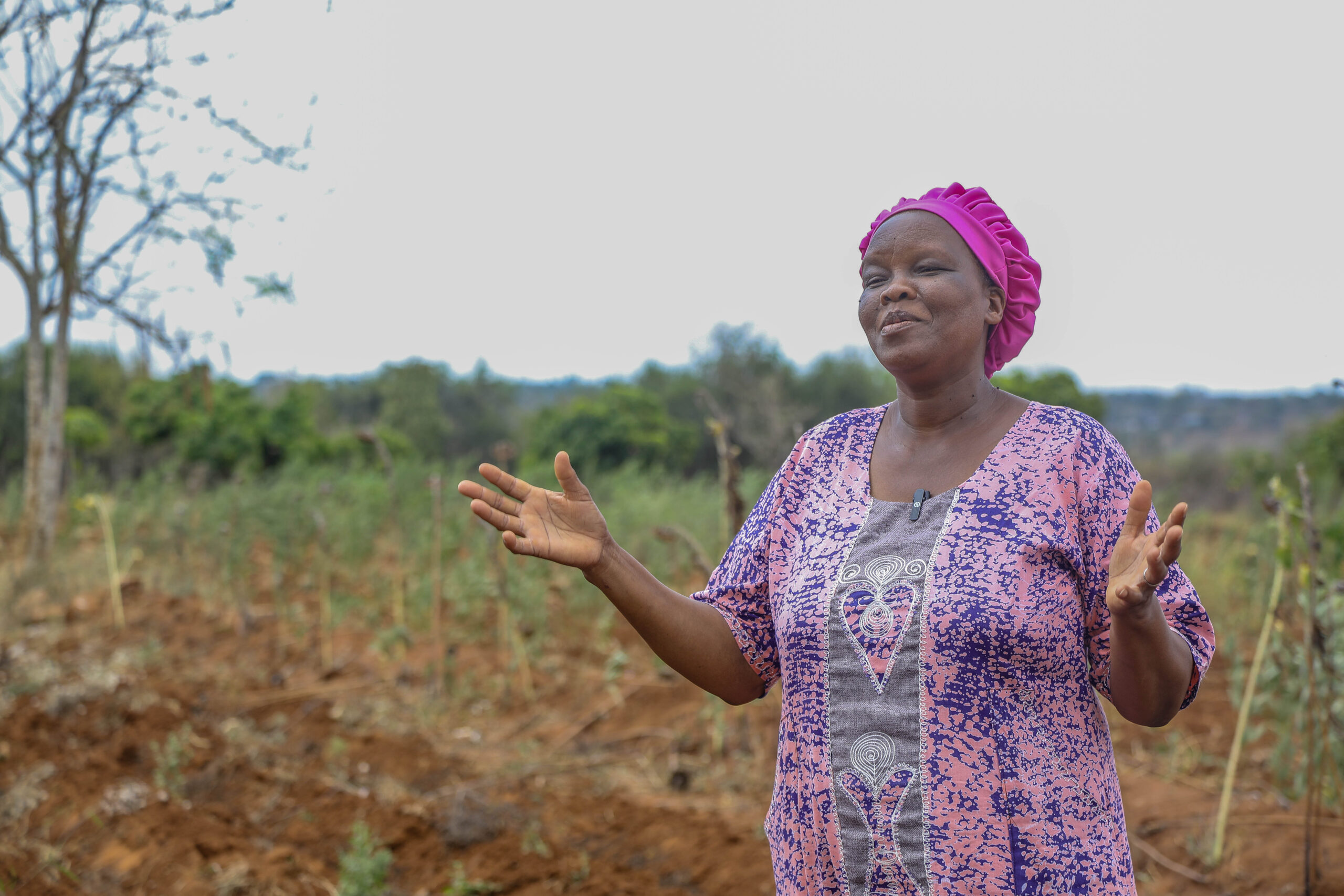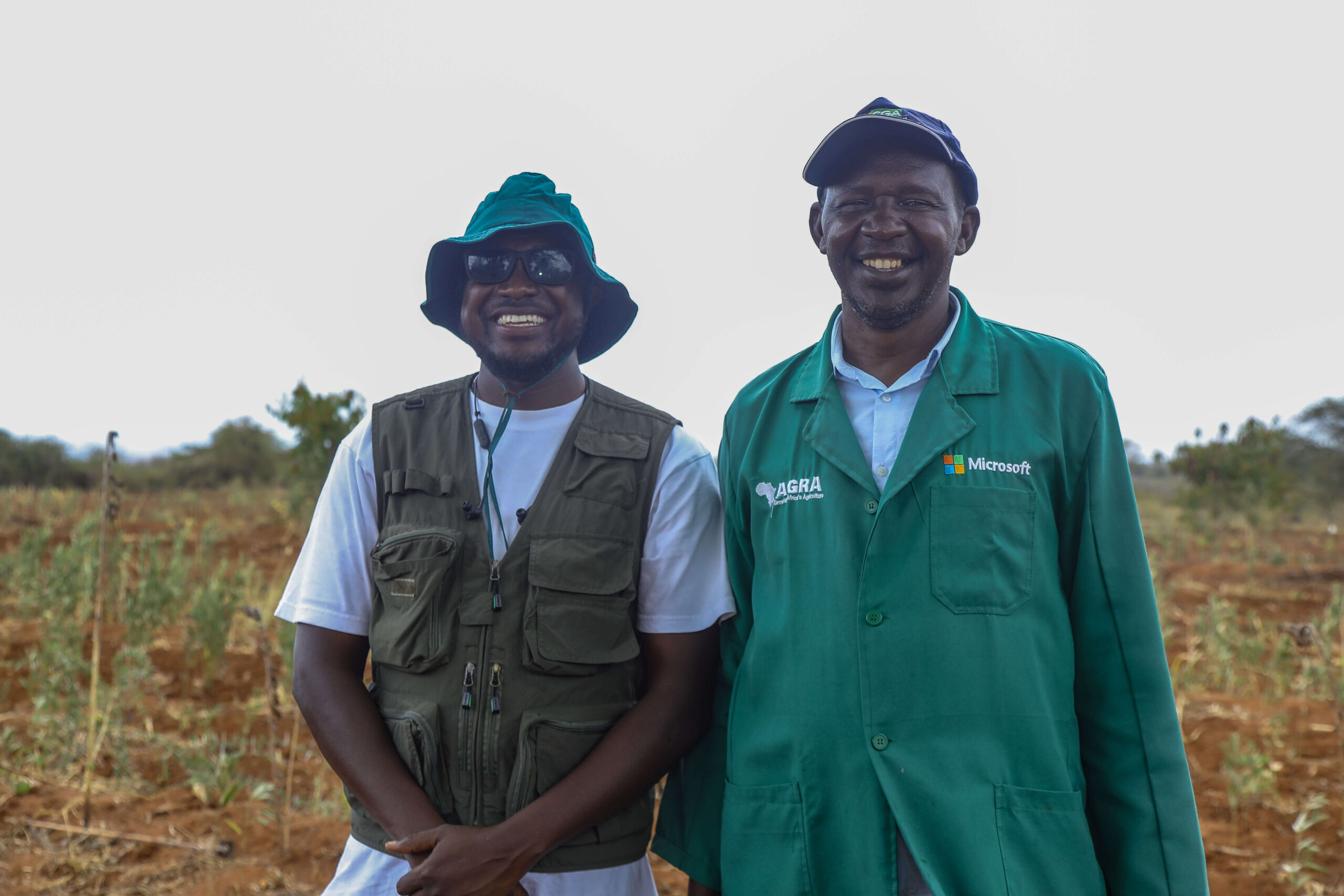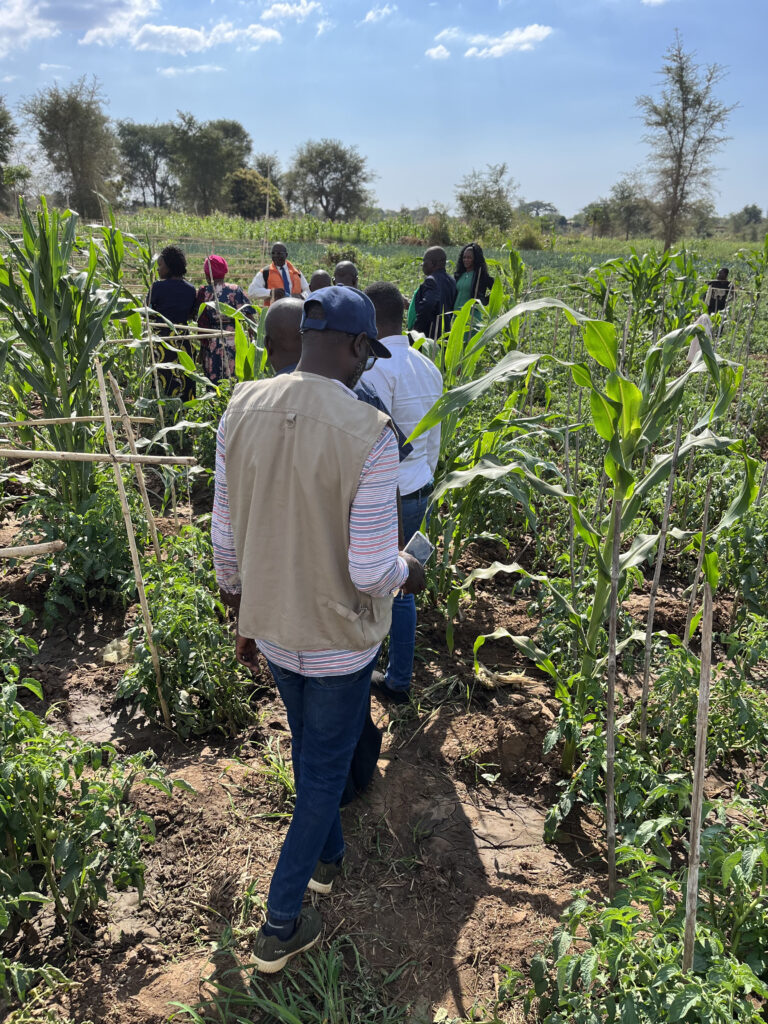By H.E. Hailemariam Dessalegn, Board Chair of AGRA & Hon. Musa Kpaka, Minister of Agriculture and Food Security, Government of Sierra Leone
Agriculture as Economic Engine
For decades, agriculture in Africa has been stuck in a cycle of survival—producing just enough to get by but never enough to transform. Sierra Leone is determined to change that, drawing lessons from countries like Tanzania and Ethiopia, where smart investments have turned agriculture into a powerful economic engine.
With over 5 million hectares of fertile land and a population with an average age of 17, Sierra Leone has the foundation to make agriculture a driving force for its economic transformation. Yet, 35% of staple rice is still imported, draining up to $200 million annually, while 18% of the population faces severe food insecurity.
The urgency for change was clear.
President Julius Maada Bio’s Feed Salone program, launched in October 2023, is driving this change, making food systems transformation a national priority to achieve food security and inclusive economic growth. The government’s commitment is clear—it has increased the agriculture budget from 2% to 7% in 2024, with a target of exceeding 10% in the coming years. Investments in infrastructure, agribusiness, and priority value chains like rice, cassava, poultry, and cocoa are set to create jobs, expand trade, and position farming as a competitive and profitable sector, especially for women and youth.
Key Ingredients for Food Systems Transformation
Building a resilient food system is tough, but the cost of standing still is even higher.
Global conflicts and climate change have disrupted supply chains, driven up prices, and exposed the risks of over-reliance on imports. In 2023, Sierra Leone saw food inflation soar above 50%, a harsh reminder that depending on volatile international markets is not a viable path forward. A reminder that we should grow what we eat on the continent.
Shifting from small-scale farming to a competitive agricultural economy requires the right conditions. Strong political will must translate into action, with institutions working together, smallholder farmers gaining real power, businesses expanding, and policies unlocking the bottlenecks so agriculture can truly thrive.
A Whole-of-Government Approach to Food Systems Transformation
Feed Salone is a presidential flagship program that brings the entire government together to drive this transformation. The Presidential Council for Feed Salone ensures that food is treated as a national priority, not just an agriculture issue. This coordinated approach aligns key ministries—agriculture, finance, trade, infrastructure, and environment—to create a strong, unified food system. It also ensures that government institutions speak the same language, streamline efforts, and engage the public in a shared national mission.
Farmers Must Have Power, Not Just Tools
Policies don’t transform economies—farmers, businesses, and markets do. Sierra Leone is putting farmers at the centre of its transformation, ensuring they have a stronger voice, better market access, and real economic power.
Smallholder farmers cannot remain disconnected from the market, with no say in pricing. Organizing into cooperatives gives them leverage—allowing them to negotiate better prices, secure stable contracts, and invest in shared resources like storage, machinery, and processing facilities. This shift turns farmers into business owners, giving them the ability to scale, process, and export their produce.
Investing Where It Makes Sense
Transforming agriculture requires strategic investment, not regional balancing. Sierra Leone is directing resources to value chains with the strongest potential to scale, starting with its rice cluster strategy, which channels investment where productivity can be maximized.
Trade must also be approached with a global mindset. Competing internationally means shifting from exporting raw commodities to building a strong agro-processing industry. Sierra Leone is focusing on key cash crops like cocoa, ensuring they meet international standards and secure premium prices in global markets. This will create jobs, generate wealth, and build a more resilient economy. Opening agribusiness opportunities for women and young entrepreneurs will ensure inclusive and sustainable growth.
Applying Private Sector Lense
For agriculture to thrive, businesses need room to scale. The government does not need to run businesses—it needs to remove the barriers that hold them back.
Infrastructure gaps, limited access to financing, and slow regulatory processes are stifling agribusiness expansion. Fixing what is possible—improving market access, cutting port delays, and making land acquisition easier—will allow businesses to grow faster and create more opportunities for farmers.
Resilience, Resilience, Resilience
Sierra Leone is one of the top 10 most climate-vulnerable countries, making resilience an urgent priority. The country must build a food system that can withstand shocks, adapt quickly, and ensure a stable food supply, especially in times of crisis.
The government is expanding irrigation, rolling out first-ever crop insurance, and scaling up climate-smart agriculture, ensuring that Sierra Leone’s agricultural sector is not just surviving these shocks but built to thrive despite them.
Partnership with AGRA: Driving Sustainable Transformation
AGRA is driving food systems transformation by helping governments shape better policies, strengthen institutions, and attract smart investments that deliver real impact. Its partnership with Sierra Leone is a strong example of this approach in action.
AGRA has been a steadfast ally in advancing Sierra Leone’s food systems transformation. It played a key role in securing a $100 million pledge during the 2024 Africa Food Systems Forum in Kigali to establish a special rice agro-processing zone. AGRA has also helped refine Sierra Leone’s transformation pathways by identifying new investable projects and strengthening institutional capacity through the establishment of the Agricultural Transformation Office.
Sierra Leone is also set to translate over $1 billion in pledges from development banks and donors in 2025 into concrete investments in agro-processing, livestock, and other high-value chains. But development funding alone is not enough—unlocking private sector capital is essential. Food security must be seen as an investment opportunity, not just a development challenge.
Unlocking Africa’s potential
Sierra Leone’s push for food security and economic growth through agriculture is part of a larger movement on the continent, and AGRA’s mission is to catalyse that growth across Africa. The international community must now match this momentum with action.
Development finance institutions and agribusiness leaders must scale technology-driven agricultural projects that can be replicated continent-wide. Stronger regional trade policies under AfCFTA will reduce import dependency and unlock Africa’s internal markets. Climate resilience must also take center stage—green financing, insurance, irrigation, and mechanization will protect farmers and boost productivity.
Africa’s agribusiness sector must grow from within. With the continent’s food market set to reach $1 trillion by 2030, multinational agribusinesses, financial institutions, and African entrepreneurs have a major opportunity to invest in homegrown innovation that drives sustainable growth and secures Africa’s place in the global agricultural economy.
Shifting into high gear
Across Africa, leaders are recognizing the need to catalyze the growth of sustainable food systems, turning agriculture into a driver of economic transformation and resilience. The next ten-year CAADP strategy reflects this shift, pushing for stronger political commitment and a whole-of-government approach to food systems transformation.
Countries that empower smallholder farmers, invest strategically, and create space for agribusiness will be the ones shaping Africa’s future. Sierra Leone is at a defining moment—with strong political will, clear strategy, and bold investments, it is moving with purpose.
The challenge now is keeping up the momentum, tackling bottlenecks, and making sure Feed Salone delivers on its promise. Sierra Leone is showing what’s possible.
The world should take notice.

